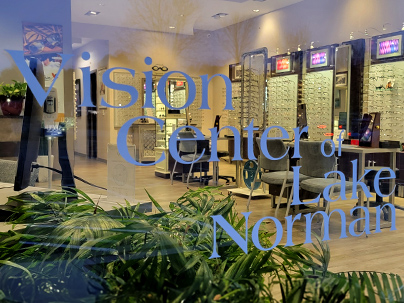April is Women’s Eye Health & Safety Month
Blog:April is Women’s Eye Health & Safety Month

April is Women’s Eye Health & Safety Month, which is an excellent opportunity to raise awareness of the unique eye health challenges that women face. Women are more susceptible to certain eye diseases and conditions, such as dry eye, cataracts, and age-related macular degeneration. In this blog, we’ll share why women are at a higher risk for sight-threatening problems and tips to ensure optimal eye health. Make sure to schedule an eye exam in Newton or Mooresville if you have any eye health concerns.
Why women are at a higher risk of eye problems
1. Hormonal changes
One of the primary reasons women are at a higher risk for certain eye diseases is due to hormonal changes. Hormonal changes during menstruation, pregnancy, and menopause can cause vision problems, dry eye, and eye irritation. During pregnancy, women may experience vision changes due to changes in fluid retention, while menopause can lead to dry eye, eye irritation, and a higher risk of cataracts.
2. Age-related factors
Women live longer than men on average, meaning they are more likely to experience age-related eye diseases such as macular degeneration and glaucoma. Cataracts are also more common in women, with women being twice as likely to develop cataracts than men.
3. Autoimmune disorders
Autoimmune disorders are also more common in women. Certain autoimmune disorders, such as lupus, rheumatoid arthritis, and Sjogren’s syndrome, can cause eye-related complications such as:
Dry eye
Uveitis (a form of eye inflammation)
Retinopathy (disease of the retina)
Tips for women’s eye health
To ensure optimal eye health, women should take the following steps:
Protect your eyes from UV rays
UV rays from the sun can damage the eyes and increase the risk of cataracts and other eye diseases. Make sure to wear sunglasses that block 100% of UV rays when outdoors, even on cloudy days.
Eat a healthy diet
A healthy diet rich in antioxidants, vitamins, and minerals can help protect the eyes from age-related diseases such as cataracts and AMD. Women should include leafy greens, fatty fish, and citrus fruits in their diet.
Manage chronic health conditions
If you have a chronic health condition, such as diabetes or hypertension, it’s essential to manage your condition carefully to prevent eye complications. Diabetics are at a higher risk of developing diabetic retinopathy, which occurs when high blood sugar levels damage blood vessels in the retina. High blood pressure can also affect these blood vessels.
Take frequent breaks from screens
Women who spend extended periods staring at screens, such as computers and smartphones, should take frequent breaks to prevent eye strain and fatigue.
Schedule regular eye exams
Regular eye exams can help detect and prevent eye diseases and conditions. Several eye diseases have no symptoms in their early stages, and they can only be diagnosed by a qualified optometrist. Women should schedule an eye exam with an eye doctor every one to two years, depending on their age and risk factors.
By following these tips, women can ensure optimal eye health and reduce the risk of eye diseases and conditions. If you’re experiencing vision changes or it’s been a while since your last eye exam, contact us to schedule your appointment today! Our eye doctors in Newton and Mooresville can examine your eyes and develop a personalized treatment plan if we find any issues.


